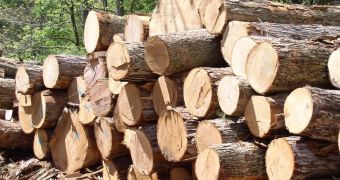London-based non-profit and non-governmental organization Chatham House has recently released a new report saying that, for the time being, about 70% of the logging activities carried out in Papua New Guinea are illegal ones.
The organization warns that, should timber barons be allowed to continue cutting down trees in Papua New Guinea unabated, odds are it is only a matter of time before the country loses most of its forest coverage.
Interestingly enough, Monbagay informs that, according to the Chatham House report, illegal logging has come to account for 70% of Papua New Guinea's timber industry despite the fact that as much as 99% of the land where such activities are carried out belongs to indigenous communities.
The non-profit and non-governmental organization maintains that, in light of this piece of information, it is only safe to assume that corruption and weak governance are to blame for the fact that the country is losing forest coverage to illegal logging at a fairly rapid pace.
“The biggest challenge is dealing with collusions between corrupt officials and logging firms. The logging industry in Papua New Guinea is very powerful, while the government is extremely weak,” Sam Lawson with Chatham House explained in a recent interview.
Furthermore, “In theory, [Papua New Guinea's community rights] should help protect forests, but the reality sadly had been that powerful businesspeople are corrupt politicians have been able to sell the communities short through fraud, bribery, and intimidation.”
In light of these findings, the non-profit and non-governmental organization recommends that efforts be made to promote transparency in the timber industry, and that those found guilty of illegally cutting down forests be punished to the full extent of the law.
In case anyone was wondering, most of the wood harvested in this country is exported to China. Unlike the United States, the European Union, and Australia, all of which have taken steps towards cutting all ties with illegally logged timber, China does not care all that much about where the wood that makes it across its borders comes from.
On the contrary, reports say that, back in 2011, this country received some 18.5 million cubic meters of illegal logs and timber. The value of these 18.5 million cubic meters of wood is estimated to have been one of $3.7 billion (€2.68 billion), and some say that as much as 21% of the illegal timber that made it into China in said year originated from Papua New Guinea.

 14 DAY TRIAL //
14 DAY TRIAL //